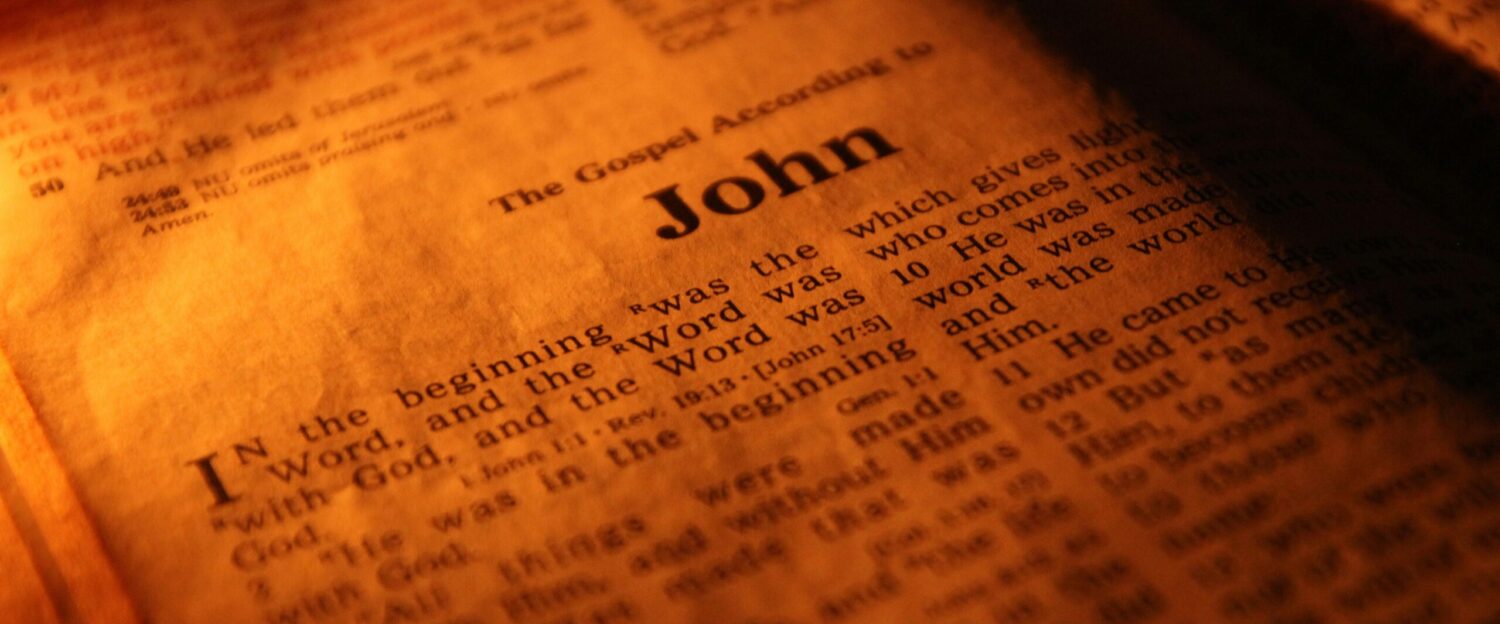If you’ve stumbled onto this blog, you might be thinking: why anyone would dedicate an entire blog to 1 John!?
Because, despite its seeming simplicity, it’s a fascinatingly deep book.
On the one hand, it’s an easy read. I don’t just mean easy to read in English. I had a Greek professor that would say, “John was a Hebrew boy who knew a little Greek.” He meant that John’s grasp of Greek was simplistic. It works, and John wasn’t ignorant, but the structure of his Greek is clear and simple.
However, it is also a difficult book to understand. John, for all his simple Greek, had an uncanny knack of saying things that could be (mis)understood to mean two (or four!) different things. That plus his use of rare words and theologically thorny statements, 1 John can turn any scholar’s hair white and make teachers hope that no one asks a follow up question…
My Interest in this Book
Ok, so it’s an interesting book, but my interest goes deeper than just unwinding Greek difficulties.
It started shortly after I was first saved. Long-story short, for the first 2 months after I was saved, my understanding of salvation was wrong. Really wrong. First, I didn’t realize that I had just been saved. I thought that I had just come back to my childhood faith. Second, because of that first wrong view, I thought that I could slip at any moment, sin, and lose my salvation “again.”
It was 1 John 4:10 (with the help of J. I. Packer’s book, Knowing God) that set me straight on that second point. In the letter, John declares that Jesus was sent to be a “propitiation for our sins.” It was that one word, propitiation, where my freedom in Christ was found. Through Jesus’ death, He had born the wrath of God on my behalf. There was no more sin left for me to account for. He was my propitiation and I was free!
Little did I know at the time that the meaning of ἱλασμός, translated (rightly!) as “propitiation,” was (is) a hotly debated word. But, regardless, that word and what it meant cemented 1 John in my mind as a sweet, sweet book and a cornerstone of my testimony. Whenever I give it, I describe reading that verse like Christian, in Pilgrim’s Progress, when he first sees Jesus on the cross. Yes, he had left his dammed city and yes, he had entered the Wicket Gate, but was still weighed down by his sin. That was me. But when he saw Jesus, the burden slipped off. Likewise, when I read 1 John 4:10, my burden fell off.
My Studies of this Book
Since that time, I’ve read the book I don’t know how many times. However, my study picked up in earnest in my first year of seminary. Like most other new Greek students, I was assigned 1 John. Also, like most other students, I spent that first year in a delusional haze thinking that my Greek was amazing because I could read it.
My time in the letter and “translating it” (oh, my professor’s mercy!) only increased my love of it. I also became more and more convinced that John did not intend it to be used for testing people’s salvation—a common use of it by layman, pastors, and scholars. I couldn’t reconcile the constant references to his readers as believers with the idea that John was providing tests.
A couple years later I returned to 1 John in an exegesis class. Finally having enough Greek to dig into the landmine that is 1 John, I found it jaw dropping and enthralling. Besides seeing things I had never seen before, I also had the privilege of having a professor who also the heavy believer emphasis on the letter. He, as I would come to agree, saw this letter as John intending to assure the readers of their salvation, not to question it.
Following that class, I wanted to encourage and assure others using this book, speaking the next 4 months teaching it in my “fellowship class” (a fancy name for adult Sunday school). In addition to teaching it so that they might be assured of their salvation (play on 5:13), I also chose it because I had decided to write my MDiv Thesis on a thorny issue in 5:14-16, namely what it means to pray according to God’s will.
After another 9 months of researching and writing that Thesis, I found myself enjoying the commentaries, some of whom had become my friends and, others, my nemesis. A thought began to form: I want to write a commentary on 1 John. Yes, I would like to talk about all the crazy issues but, more importantly, I want to produce a commentary where assurance is the central interpretive principle.
Why This Blog?
This blog is a baby step towards my (eventual) commentary. I am not yet ready to write it. But I do want to start writing content for it. That is this blog.
My goal will be to make this blog a kind of “thinking out loud” write up of 1 John. It will try to balance between academically sound and layman-readable. I don’t plan to write in strict order and I am allowing myself to be free to edit or change previous blogs.
I’m also hoping you will come along for the ride! In the blog comments, I’d like to hear your thoughts, push backs, and even cries for mercy. Help me to see what I’m missing and I will try to help you see the book better. May we both profit as a result!
